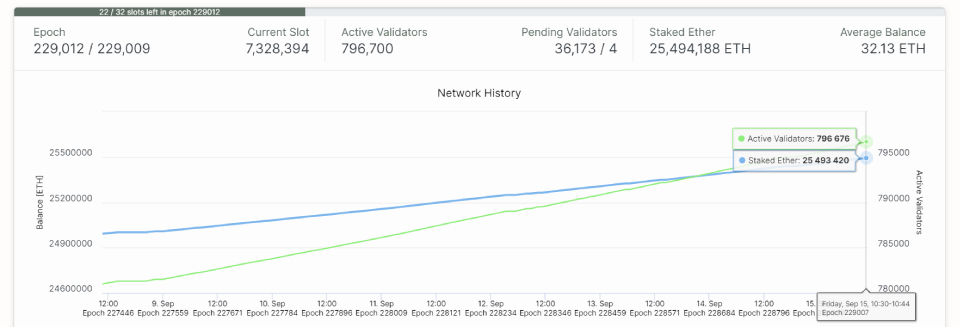In a recent meeting of Ethereum core developers held on September 14, significant decisions were made regarding an imminent upgrade to the Ethereum network. This upgrade, known as Ethereum Cancun-Deneb or Dencun, is scheduled for implementation in late October 2023. One of its primary objectives is to introduce a mechanism for adjusting the network staking rate, a move driven by growing concerns that excessive ETH staking could have adverse effects on the network’s economic environment.
The Ethereum Cancun-Deneb upgrade consists of two distinct components: Deneb, which is focused on the Consensus Layer, and Cancun, which targets the Execution Layer. Within this upgrade, an essential proposal known as EIP-7514 has been incorporated, aimed at modifying the ‘churn limit’ function. This modification will establish an upper bound for the churn limit, a crucial parameter that governs the number of validators permitted to join or leave the network within a specific time frame. Developers are contemplating reducing the churn limit to provide them with more time to carefully manage the economic and technical implications of liquid staking.
One of the standout features of the Ethereum Cancun-Deneb upgrade is EIP-4844, which introduces Proto-Danksharding, a critical step towards achieving full Danksharding. This innovative approach utilizes data “blobs” to significantly reduce gas fees and enhance transaction throughput. The implementation of this feature is expected to bring about substantial improvements in the network’s efficiency.
ETH Staking
Since the introduction of ETH withdrawals in April, Ethereum’s validator activation queue has remained consistently full. This surge in validator activity can be attributed to the burgeoning popularity of Ethereum liquid staking. Among the various platforms facilitating liquid staking, Lido has emerged as the dominant player, accounting for approximately one-third of all staked ETH.
At present, there are approximately 25.4 million ETH tokens staked within the Ethereum ecosystem, translating to a staggering value of around $41.5 billion at current market prices. These figures underscore the significance of the upcoming Ethereum Cancun-Deneb upgrade in addressing the challenges and concerns associated with staking mechanisms within the network.
In conclusion, the Ethereum Cancun-Deneb upgrade represents a pivotal moment in Ethereum’s evolution, as it seeks to address the pressing issues related to network staking. By introducing adjustments to the staking rate mechanism and implementing innovative features like Proto-Danksharding, Ethereum aims to enhance its economic environment while accommodating the growing demand for liquid staking. As the upgrade’s late October launch approaches, the cryptocurrency community eagerly anticipates the positive impact it will have on the Ethereum network and its stakeholders.
